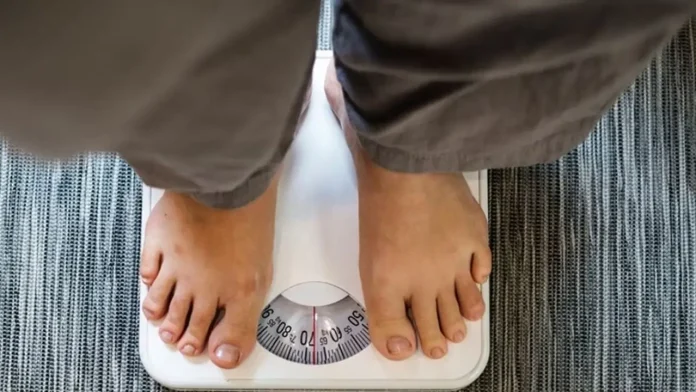1. The Exercise Paradox: Why More Movement Doesn’t Always Mean More Loss
It seems intuitive: more movement should burn more calories, right? Not always.
The exercise paradox shows that highly active individuals often consume more calories in non-structured activities, balancing out the extra burn.
As an example, the Hadza tribe—hunter-gatherers—had similar energy expenditure to sedentary Westerners, despite far more movement. Moreover, over time, the body adapts, burning fewer calories during exercise.
Takeaway: Exercise is essential for health, not a magic bullet for fat loss. It supports weight maintenance, mood, and metabolism—but weight loss depends heavily on diet and avoiding adaptive compensation.
2. Metabolic Adaptation: Your Body Hits Back
Metabolic adaptation is your body’s defense system. When you reduce calories and ramp up activity, it slows your resting metabolic rate to conserve energy. This is confirmed by numerous studies and trainer testimonies.
This slowdown doesn’t show up on your scale but makes sustaining a caloric deficit very tough.

Exercise may burn fewer calories than before, and breaking through requires adjustments—more protein, strength training, better rest.
Regularly recalculate your caloric needs based on weight changes, and use strength training to combat metabolic slowdown.
3. Diet Quality: Not Just Calories, but Nutrients Too
Over-focusing on calories often backfires. Even if you’re tracking intake, poor food quality can sabotage progress.
- Eating whole foods (lean protein, vegetables, whole grains) increases satiety and supports muscle preservation
- Ultra-processed “healthy” foods, sugary drinks, and hidden calories can creep into your diet unnoticed
Food Quality vs Weight Loss
| Food Type | Impact on Weight Loss |
|---|---|
| Whole foods (veggies, lean protein) | High satiety, fewer hidden calories |
| Ultra-processed “health” foods | Often loaded with sugar, low fiber |
| Sugary or diet/zero-cal fluids | Spike hunger hormones (ghrelin) |
Focus on nutrient density—not just quantity—for sustainable results.
4. Protein and Muscle: Your Secret Weapons
Protein plays several critical roles in effective weight loss:
- Keeps you full and reduces cravings.
- Preserves muscle mass during calorie deficits—critical to maintaining metabolism
- Requires more energy to digest (thermic effect).
Pairing protein with strength training combats muscle loss, maintains metabolic rate, and shapes your physique.
Over-reliance on cardio—even high-volume sessions—without adequate protein and resistance work can plateau fat loss.
5. Sleep Debt: The Hormonal Culprit
Short, disrupted sleep spikes ghrelin (hunger hormone) and lowers leptin (satiety hormone).
It also elevates cortisol, encouraging fat storage, and increases cravings, especially for sweet or salty comfort foods.
Aim for 7–9 hours per night, with consistent sleep-wake timings—even weekends. Good sleep supports hunger regulation, workout consistency, and stress resilience. Without it, progress stalls—even with perfect diet and exercise.
6. Stress & Cortisol: Hidden Saboteurs
Chronic stress elevates cortisol, which encourages fat accumulation (often abdominal) and disrupts appetite regulation
Combat stress by:
- Practicing mindfulness or meditation
- Doing leisurely walks or stretching
- Engaging in hobbies and social activities
- Mastering sleep consistency
Even small stress-management techniques enhance results—and help you stick to healthy routines consistently.
7. Hormonal Roadblocks and Medical Conditions
Conditions like insulin resistance, PCOS, hypothyroidism, and sleep apnea can dramatically inhibit weight loss. Medications (steroids, antidepressants, insulin) can also cause weight gain or resistance.
If you’re doing everything “right” yet making no progress, consult a doctor:
- Test for thyroid issues
- Screen for PCOS or insulin resistance
- Review side effects of medication
- Explore sleep apnea if you snore or feel unrested
Underlying conditions often require professional help to shift weight-loss barriers.
8. Exercise Strategy Tweaks
Over-exercising or repeating the same routine often stalls progress.
- Add strength training: Builds muscle to elevate basal metabolic rate
- Include interval training: HIIT boosts calorie burn and metabolic flexibility
- Change routines every 4–6 weeks to avoid adaptation.
- Overtraining can drive inflammation and cortisol up—balancing exercise intensity with rest is crucial
Smart programming—mix of cardio, strength, flexibility, and rest—typically outperforms “more is more” cardio-only approaches.
9. Water & Alcohol: The Hidden Calories
Drink more water—studies show a 500 ml pre-meal water habit can lead to faster weight loss
On the other hand, alcohol adds empty calories, increases appetite, and may trigger poor food choices. Even zero-sugar substitutes don’t avoid the hormonal effects of carbonation or sweetness.

Swap out sugary drinks for water or herbal teas. Limit alcohol rigorously for faster progress and improved hormone health.
10. Plateaus and Patience
Initial weight loss often results from water and glycogen depletion. Once your body adjusts, fat loss slows, causing plateaus
Muscle gain can mask fat loss on the scale, too. Use measurements like waist circumference or progress photos to capture non-scale changes.
Be patient—typical weight loss is 0.5 to 1 kg per week. If the scale doesn’t move, it doesn’t mean you’re failing. Adjust calorie intake, swap foods, or scale your workouts—but continue consistently.
11. Mindset & Realistic Expectations
Extreme weight-loss expectations often cause burnout. Aim for sustainable, incremental improvements. Dieting fueled by deprivation rarely lasts.
Mental health matters: issues like depression, anxiety, or disordered eating can sabotage progress . Building a healthy relationship with food and body is foundational.
Accept where your weight can realistically go, and shift focus to health gains—better stamina, fewer medications, improved mood. That’s where genuine, long-term success begins.
12. Common Weight Loss Blockers
| Blocker | Impact | Quick Fix |
|---|---|---|
| Metabolic adaptation | Slows calorie burn | Strength training, adjust calories |
| Hormonal imbalance | Increases fat storage, hunger | Medical screening, manage cortisol |
| Poor sleep | Hinders appetite control | Prioritize consistent sleep (7–9 hrs) |
| Diet quality issues | Hidden calories, low satiety | Focus on whole foods, high protein |
| Exercise plateau | Burn adaptation | Mix in strength & HIIT, vary routines |
| Stress & cortisol | Drives cravings & fat walls | Mindfulness, moderate exercise, rest |
| Alcohol & sugary drinks | Adds “invisible” calories | Replace with water or herbal tea |
| Unrealistic expectations | Demotivation, abandonment | Goals, patience, track non-scale success |
Weight loss is complex—your body adapts, your hormones shift, your habits matter, and your mindset is key. The path forward isn’t just about more sweat—it’s about smart programming, balanced nutrition, recovery, and consistent lifestyle habits.
- Track and adjust calories accurately
- Prioritize whole, nutrient-dense foods
- Hydrate well, avoid sugary drinks
- Sleep, stress, and mindset matter as much as exercise
- Include strength training and variety
- Reassess metabolic and health roadblocks with professionals
- Celebrate non-scale progress

